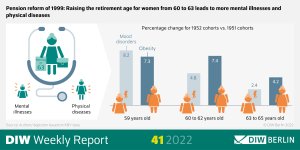As populations age and life expectancies increase, many governments around the world are responding with a controversial policy shift: raising the retirement age. The argument is largely economic—longer lifespans mean more years of benefit payments, putting pressure on pension systems and public budgets. However, this approach has sparked significant debate, with critics warning that it could do more harm than good, especially for vulnerable groups.
Supporters of raising the retirement age argue that current systems are financially unsustainable. In many developed countries, there are fewer workers supporting a growing number of retirees. Governments fear that without reform, pension funds could become insolvent, leading to deeper social and economic crises. They also point to improved healthcare and longer life expectancy as justifications for keeping people in the workforce longer. If people are living to 85 or 90, is retiring at 62 or 65 still practical?
Yet, while the logic may appear sound on paper, the real-world implications are far more complex. Not all workers are affected equally. Those in physically demanding jobs—such as construction, manufacturing, or nursing—often cannot continue working into their late 60s or 70s. Extending the retirement age for these individuals could mean years of physical hardship or being forced into early retirement with reduced benefits.
There's also the issue of inequality. Research shows that lower-income workers tend to have shorter life expectancies than their wealthier counterparts. By raising the retirement age, many in disadvantaged groups may receive fewer years of retirement benefits—or none at all—while higher-income individuals enjoy extended retirements. This creates a system where those who need public support the most are penalized the hardest.
Younger generations are also impacted. Delaying retirement for older workers can limit job openings and career progression for younger employees. With already competitive job markets and growing student debt burdens, this dynamic adds further strain to intergenerational equity.
Moreover, raising the retirement age doesn’t address deeper structural problems in pension and labor systems. Critics argue that governments should instead focus on more equitable tax reform, better access to retirement savings plans, and strategies to improve workplace health and flexibility for older workers. Solutions like partial retirement, job retraining, or phased retirement programs can provide a more humane transition.
Despite these concerns, the trend continues. Countries like France, Germany, and the United States have all proposed or implemented changes to push retirement later. Protests and public backlash are common, highlighting how deeply personal and political the issue has become.
In conclusion, while raising the retirement age might seem like a practical step to ensure economic sustainability, it raises serious ethical and social questions. Retirement should be a reward for decades of work, not a moving target that punishes those least able to adapt. Policymakers must consider not only economic logic but also fairness, health, and quality of life when reforming retirement policies.
Image source :- Redirect Notice
Supporters of raising the retirement age argue that current systems are financially unsustainable. In many developed countries, there are fewer workers supporting a growing number of retirees. Governments fear that without reform, pension funds could become insolvent, leading to deeper social and economic crises. They also point to improved healthcare and longer life expectancy as justifications for keeping people in the workforce longer. If people are living to 85 or 90, is retiring at 62 or 65 still practical?
Yet, while the logic may appear sound on paper, the real-world implications are far more complex. Not all workers are affected equally. Those in physically demanding jobs—such as construction, manufacturing, or nursing—often cannot continue working into their late 60s or 70s. Extending the retirement age for these individuals could mean years of physical hardship or being forced into early retirement with reduced benefits.
There's also the issue of inequality. Research shows that lower-income workers tend to have shorter life expectancies than their wealthier counterparts. By raising the retirement age, many in disadvantaged groups may receive fewer years of retirement benefits—or none at all—while higher-income individuals enjoy extended retirements. This creates a system where those who need public support the most are penalized the hardest.
Younger generations are also impacted. Delaying retirement for older workers can limit job openings and career progression for younger employees. With already competitive job markets and growing student debt burdens, this dynamic adds further strain to intergenerational equity.
Moreover, raising the retirement age doesn’t address deeper structural problems in pension and labor systems. Critics argue that governments should instead focus on more equitable tax reform, better access to retirement savings plans, and strategies to improve workplace health and flexibility for older workers. Solutions like partial retirement, job retraining, or phased retirement programs can provide a more humane transition.
Despite these concerns, the trend continues. Countries like France, Germany, and the United States have all proposed or implemented changes to push retirement later. Protests and public backlash are common, highlighting how deeply personal and political the issue has become.
In conclusion, while raising the retirement age might seem like a practical step to ensure economic sustainability, it raises serious ethical and social questions. Retirement should be a reward for decades of work, not a moving target that punishes those least able to adapt. Policymakers must consider not only economic logic but also fairness, health, and quality of life when reforming retirement policies.
Image source :- Redirect Notice

